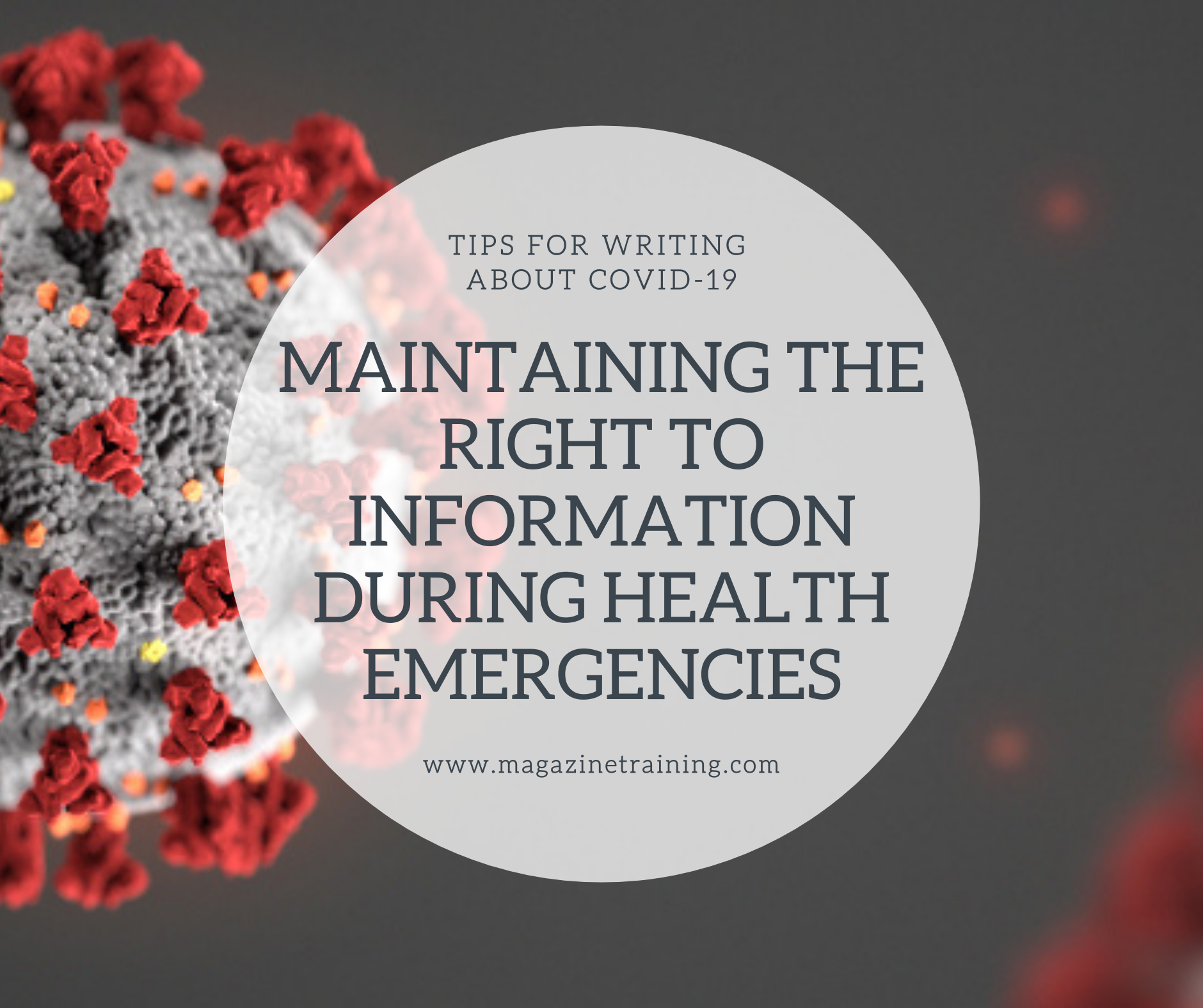
The COVID-19 pandemic has created both significant burdens for governments, as they are called upon to protect citizens’ health and minimise the economic impact of the pandemic, and significant operational challenges, as many staff are working from home. Many States have responded by imposing limits on the right to information while others have refrained from doing so. Today, the Centre for Law and Democracy (CLD) is releasing a report, Maintaining Human Rights during Health Emergencies: Brief on Standards Regarding the Right to Information, setting out and analysing the international standards that should guide State behaviour in this area.
“Many States responded to the pandemic in a knee-jerk way by restricting or even suspending the right to information,” said Toby Mendel, Executive Director, CLD. “We believe that this right is more important now than ever and that, instead of limiting it, States should protect it as an essential service which helps improve government responses to the emergency.”
CLD’s Brief outlines relevant international standards, as well as the main ways in which States have limited the right to information during the COVID-19 pandemic. The latter builds on the COVID-19 Tracker, which captures legal changes to the rules relating to requests for information. The Brief then analyses what international standards mean for States, providing a number of key principles that States should respect during public health emergencies.
Related posts
Category: Uncategorized
Malnutrition is a health crisis affecting millions around the world — and one becoming more urgent as the pandemic continues. Its impact is not just represented in [...]
Magazine Training International’s mission is to encourage, strengthen, and provide training and resources to Christian magazine publishers as they seek to build the church and reach their societies for Christ.

